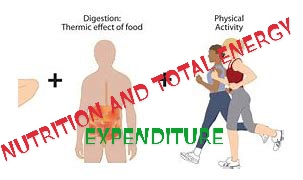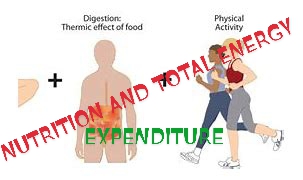

CHAPTER ONE
- INTRODUCTION
1.1 BACKGROUND OF STUDY
An athlete (America and British English) or sportsman (British is a person who competes in one or more sports that involve physical strength, speed and/or endurance. Athletes may be professionals amateurs. The word “athlete” is a Romanization of the Greek: athletes, one who participates in a contest; from athlos, or Athlon, a contest or feat. (Collins English Dictionary, 2000). The sport of athlete is defined by the many events which make up its competition programmes. All events within the sport are forms of running, walking, jumping or throwing. These events are divided in to the sub-sports of track and field road running, race-walking and cross country running.
Current estimates suggest approximately 35 million youth between the ages of 5-18 years participate in organized sports each year (seefeldt and Ewing, 1997). While a majority of these youth athletes are playing sports for the aspects of comradery and fun, a growing segment of young athletes train to enhance their opportunity to make a career of sport.
While elite sport has long seen the presence of young athletes, the past few decades have experienced an expansion in the numbers of young athletes working to perform at higher levels as youngers athletes. This expansion can be seen in the establishment of the many facilities open focusing specialized training for sports performance on not only elite athletes but also largely youth athletes (seefeldt and Ewing, 1997)
Nutrition is the intake of food, considered in relation to the body’s dietary needs. Consequently, Nutrition is the science that interprets the interaction of nutrients and other substances in food (e.g. phytonutrients, anthocyanin’s, tannins, etc.) in relation to maintenance, growth, reproduction, health and disease of an organism. It includes food intake, absorption, assimilation, biosynthesis, catabolism and excretion.
The food or diet of an organism is what it eats, which is largely determined by the availability, the processing and palatability of foods. A healthy diet includes preparation of food and storage methods that preserve nutrients from oxidation, heat or leaching, and that reduce risk of food-born illnesses. Good nutrition — an adequate, well balanced diet combined with regular physical activity — is a cornerstone of good health. Poor nutrition can lead to reduced immunity, increased susceptibility to disease, impaired physical and mental development, and reduced productivity (Wiita and Stombaugh, 1996).
A key priority for athletes is to establish a well-chosen training diet that can be easily manipulated when special situations emerge (for example, changes to training load, changing body composition goals, or special competition needs). A good base diet will provide adequate nutrients and energy to enhance adaptations from training, support optimal recovery and avoid excessive food-related stress. Heavy training increases the need for nutrients, particularly carbohydrate, protein and micronutrients (vitamins and minerals). (Wiita and Stombaugh, 1996).
Most professional athletes have particularly well-developed physiques obtained by extensive physical training and strict exercise accompanied by a strict dietary regimen. Athletes regularly engaging in strenuous exercise programs should be aware of their daily nutritional needs. Maintaining a healthy diet that provides adequate energy and nutrients is vital to support intense training as well as to optimize immune system functions. Proper nutrition is a fundamental component of athletes’ training and performance plan.
Proper nutrition ensures that an individual is amassing the fuels necessary for the energy production needs related to activity and recovery. One of the areas needing to be addressed is the unique nutritional needs associated with intense exercise stress (Seefeldt and Ewing, 1997). Nutrition is an integral component to any athletes training and performance program. in adults the balance between energy intake and energy demands is crucial in training, recovery, and performance.
In young athletes the demands for training and performance remain but should be a secondary focus behind the demands associated with maintaining the proper growth and maturation (Jeukendrup and Cronin, 201 1).
Many athletes are faced with the challenge of achieving very high energy intakes to support extremely high training loads and/or the cost of growth or maintaining a large, lean body mass. Other athletes need to restrict their energy intake in order to maintain a low body mass and body fat levels. At times it can seem that following all sports nutrition guidelines works against goals of achieving energy balance, particularly for athletes with lower energy needs such as females. It may not be practical to have a large pre-exercise snack, consume carbohydrate during exercise, follow recovery guidelines and still achieve an energy intake compatible with one’s body composition goals Smart planning is needed to optimize the benefits provided by sports nutrition within the framework of each athlete’s unique total energy allowance (Armstrong, 2002).
1.2 STATEMENT OF PROBLEM
Sport nutrition is not well recognized in Nigeria (Okano 0, 1998) yet; athletes have played a great role in the development of the country. Not much work has been carried out on the nutritional needs and total energy expenditure for athletes in Nigeria. Therefore, it would be important to develop the field of sport nutrition and promote appropriate nutritional standards of these athletes in other to improve their performance and roles in the development of the country. This study would help to provide information to help athletes towards improvement and sustenance of good performance through proper nutrition.
1.3 AIM AND OBJECTIVES
1.3.1 Aim
The aim of this study is to access the nutritional and total energy expenditure of athletes in federal polytechnic Bida.
1.3.2 Objectives
- To assess the nutritional status of athletes in the Federal Polytechnic Bida
- To assess the total energy expenditure of athletes in the Federal Polytechnic Bida
- To evaluate the effect of nutrition and total energy expenditure on the health of athletes.
1.4 JUSTIFICATION FOR THE STUDY
It can sometimes be challenging for athletes to increase their daily intake to match their actual nutritional needs. Training, work/school, sleep, and other sport activities take time away from preparing and eating meals. Athletes who participate in athletics are at risk for the adverse effects of poor energy intake prior to a competition. Such energy restrictions may cause loss of muscle and may interfere with athletic performance. On the other hand, an adequate nutritional status in athletes is essential to maintain adequate performance. f-fence, the knowledge of nutrition by the athlete is a matter of utmost importance on the energy expanded.
1.5 SCOPE OF THE STUDY
The study essentially focuses on the nutritional challenges and energy expenditure of athletes in the Federal Polytechnic, Bida.
1.6 Research Questions
- To what extent can nutrition affect the health status of athletes in the Federal Polytechnic Bida?
- To what extent can total energy expenditure affect the health of athletes in the Federal Polytechnic Bida?
- What are the remedies to these effects?





